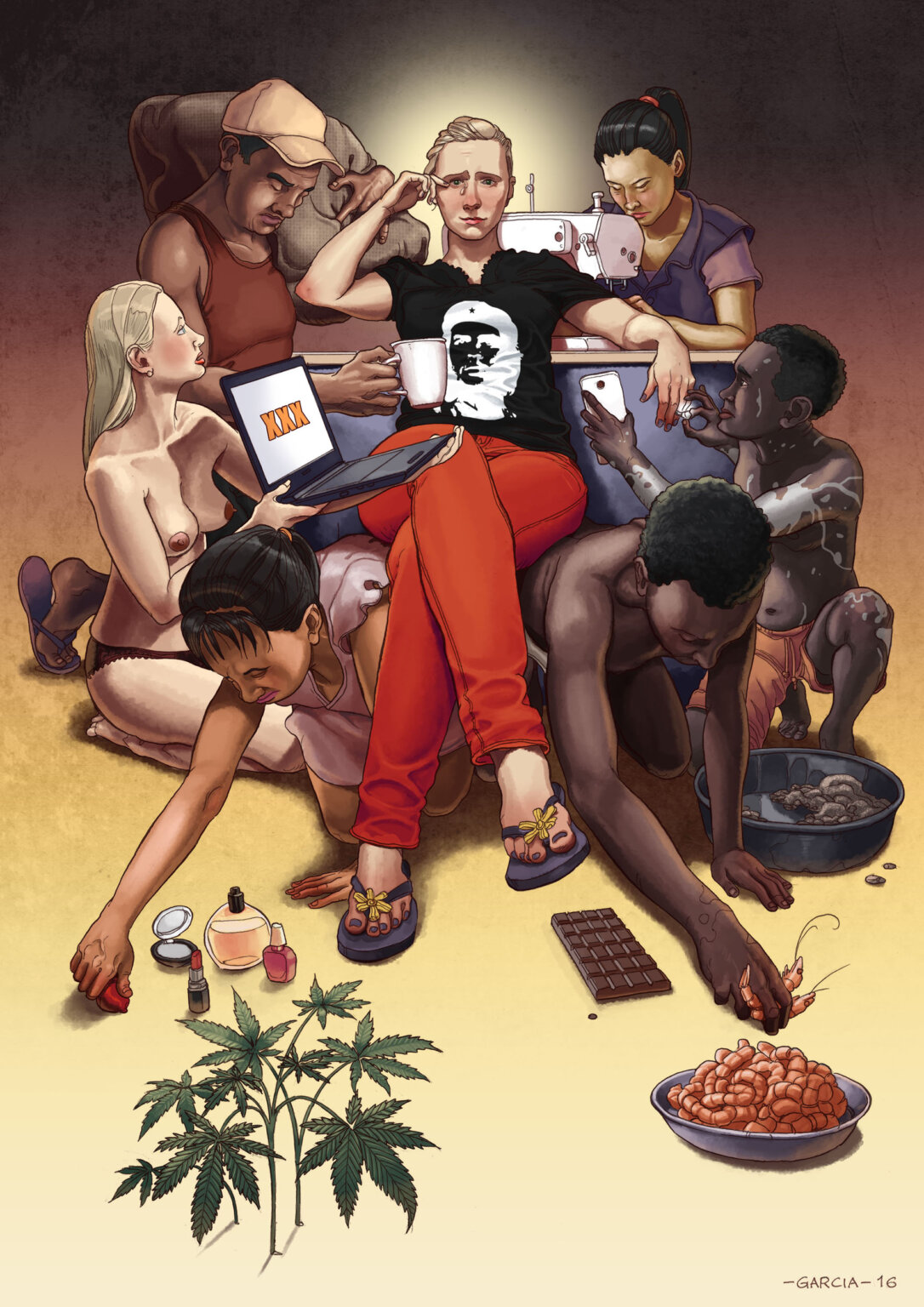- About
- Topics
- Picks
- Audio
- Story
- In-Depth
- Opinion
- News
- Donate
- Signup for our newsletterOur Editors' Best Picks.Send
Read, Debate: Engage.
| topic: | Humans |
|---|---|
| located: | United Kingdom, Germany, USA |
| editor: | Gurmeet Singh |
There is a good chance that something you bought in last two weeks was produced by slave labour. Perhaps it was tuna, or maybe you got your nails done, or maybe you even bought a fancy new gadget (the latter may have even involved child labour). This shouldn’t necessarily be surprising; dismaying, of course, but surprising? I’m not sure.
The apparently endless stock of goods should make us suspicious. Supermarkets are everyday filled with fresh fruit, tinned fish, dairy, and juice. There is no shortage of smartphones to choose from. You can have something delivered to your house within 24 hours. Miraculous as all this may be, it should make us wary. The way our consumerist world appears obscures the conditions under which it exists.
Human rights violations exist right across our supply chains. From the minerals mined in the Congo to make our digital products possible, to everyday abuses of staff in factories. Extreme examples include slavery.
Slavery isn’t something most people associate with their weekly shopping trip. But it is still very much a part of our world, and it finds its way directly into our lives by being a part of the supply chains which feed businesses, including supermarkets. The U.K.’s Modern Slavery Act was designed in 2015 to exclude slave-produced goods from U.K. supply chains, but it was already being described in 2018 by MPs as ineffective. According to the BBC:
“MP Gareth Snell was worried that the keystone of the system - a requirement for big companies to report on their efforts to stop slavery in their supply chains - was not working properly.
He told MPs that at a meeting of the Public Accounts Committee, the Home Office confirmed that it does not compile a list of companies that should make a declaration of transparency in the supply chains, does not have a list of those that have done so and - importantly - does not maintain the database."
In other words the enforcement was weak.
"Unfortunately, because everything is being done by third-party NGOs, the ability to compel necessary information simply does not exist. Until the government introduces something on a formal statutory basis, more and more organisations will seek to put aside their responsibilities," he told MPs.”
So the laws were not properly enforced, nor were proper records kept, and to top it off, the bulk of the work was left to non-governmental organisations. This is rather like maintaining a police force in a city, but not giving them uniforms, responsibilities or anything to do while relying on citizens to police themselves. Up to this point, the law is relatively ineffective.
At least the U.K. is attempting to evaluate and correct its involvement in slavery, perhaps more sensitive to the issue since it was instrumental in slavery in previous centuries, but also a leading centre of global abolitionism. In Germany, the situation is not at the forefront of public discussion.
In a review of 16 of the largest supermarkets in the U.S., U.K. and Europe, German supermarkets ranked badly when it came to human rights abuses. I AM EXPAT writes: “The report ranked each supermarket on four areas, using publicly available information, according to the UN’s Guiding Principles on Human Rights. The ranking factors included transparency; workers' rights; trade and relations with smallholders; and gender equality and women’s rights.
Overall, the German supermarkets examined scored badly, all of them scoring less than 20 percent out of a possible one hundred. This put them firmly in the bottom half of the ranking. Discount chain Aldi Süd ranked best in Germany, with an overall score of 19 percent, but this was still way behind frontrunners from the United Kingdom, Tesco (38 percent) and Sainsbury's (27 percent). Even American giant Walmart ranked better, with an overall score of 23 percent.”
To ensure businesses behave ethically and monitor their supply chains, contact your government to raise the issue in your region, and demand that laws be introduced and enforced. No one should have to suffer just so we can buy cheap food.

